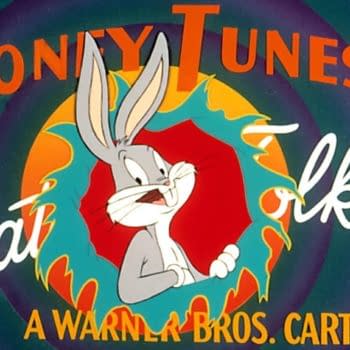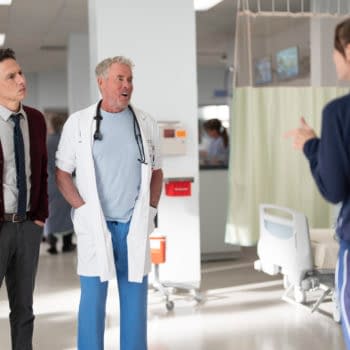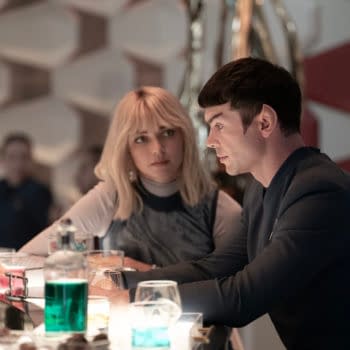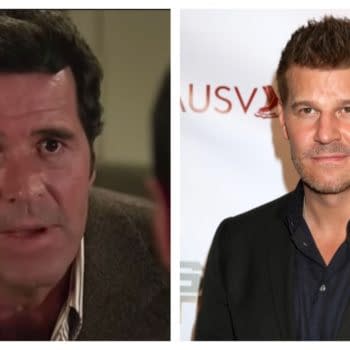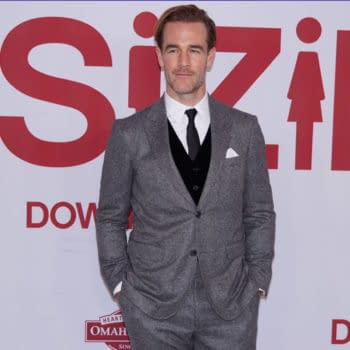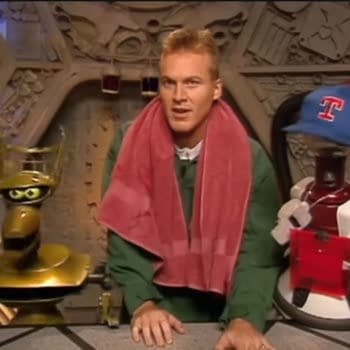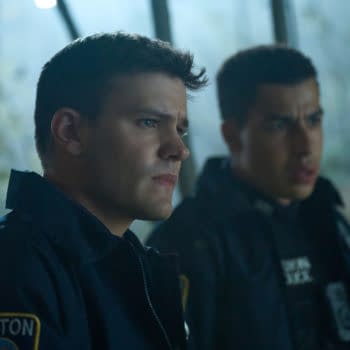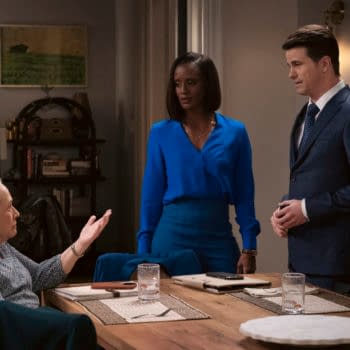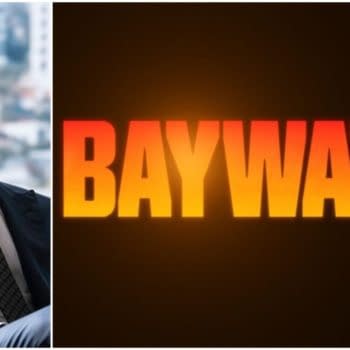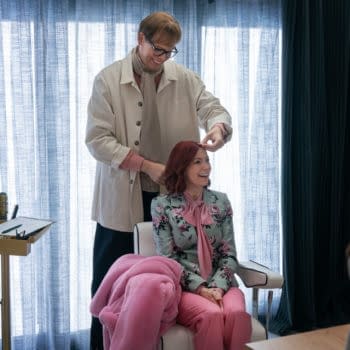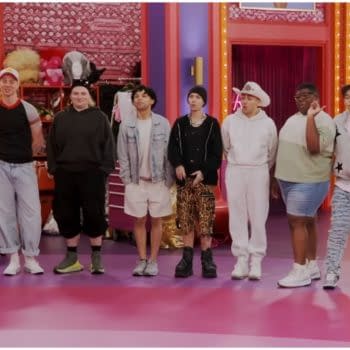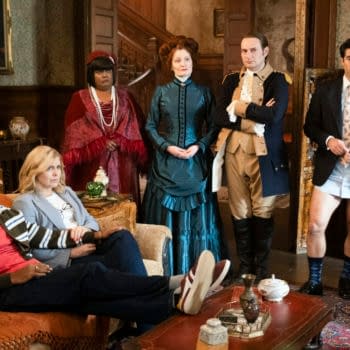Posted in: Apple, TV | Tagged: apple tv, brie larson, exclusive, interview, Lessons in Chemistry, Millicent Shelton
Lessons in Chemistry Director Discusses Brie Larson Drama Series
Director Millicent Shelton spoke with Bleeding Cool about her work on the 10-time Emmy-nominated Apple TV+ series Lessons in Chemistry.
Millicent Shelton is one of the busiest TV directors in Hollywood, with nearly 35 years of experience dating back to her days directing music videos with talents like Salt-N-Pepa, Mary J. Blige, and Aaliyah. In the mid-2000s, she decided to shift her focus more to television, working on a wide range of sitcoms, action, and dramas, including Fox's The Bernie Mac Show and Castle, NBC's My Name is Earl and 30 Rock, The CW's Everybody Hates Chris and 90210, ABC's Cougartown, TNT's Leverage, Showtime's Californication, SYFY's Warehouse 13. In recent years, she's expanded herself to the superhero genre, directing CBS/The CW's Supergirl, Max's Titans, Netflix's Jessica Jones and Luke Cage, and found a home on AppleTV+ working on dramas like Truth Be Told, The Morning Show, and Lessons in Chemistry.
Shelton spoke to Bleeding Cool about what drew her to the 10-time Emmy-nominated series, being part of an all-female directing team, working with star Brie Larson, difficult scenes, and why she feels at home on TV. Based on the book by Bonnie Garmus of the same name and developed by Lee Eisenberg, Lessons in Chemistry follows Elizabeth Zott (Larson), who becomes the host of a 1960s cooking show called Supper at Six after getting fired from her job as a lab tech, using the show's platform to educate housewives on scientific topics. Note: The following contains a potentially triggering sensitive subject matter, reader discretion is advised.
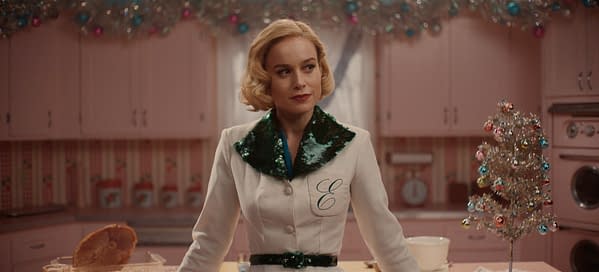
Lessons in Chemistry Director Millicent Shelton on Bringing "Authenticity" in Her Storytelling
Bleeding Cool: What intrigued you about 'Lessons in Chemistry?' Did you read the Bonnie Garmus book?
What initially intrigued me about 'Lessons in Chemistry' was hearing Brie Larson was attached to the project, which piqued my interest. I read the pilot and episode two scripts and was engaged, wanting to know what was coming next. I decided to come on to the project and read the book; fabulous and engaging. I was hooked on the project.
How do you compare working on a historical series like this to a more contemporary one?
When you work on a historical series, there is an onus on the people involved to be historically accurate, whereas in a more contemporary project, you don't have to look at that. It just is, and now is now, right? When you go back to the 1950s, you must look at little details, like the mannerisms of how the men and the women acted in that time and how they treated each other. You want to be authentic to that period and don't want to modernize them too much because then it won't feel right and accurate. We also must remember not to glamorize those times to a certain degree. People were still people, but they weren't perfect or flawed, and there were still problems.
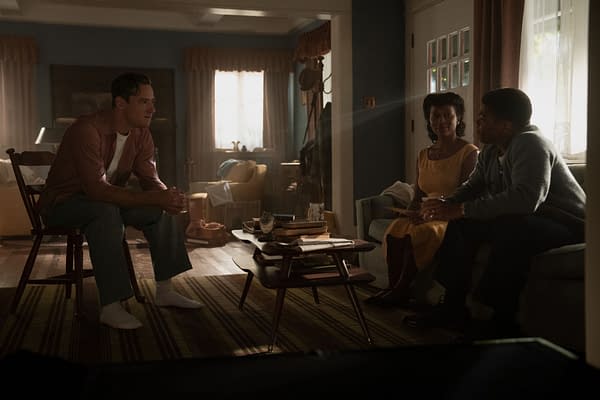
What can you speak of the talent you had to work with Brie, Lewis [Pullman], Aja [Naomi King], and Stephanie [Koenig] and what can you say about them?
They're all different and amazing actors. It was interesting working with Brie because she was [also] an executive producer. She had lived with the material longer than everybody. That was part of the project, so conversations with her were on a different level because she was also a producer. She knew where the series was going all along, but then, at a certain point, it was talking to Brie, the actress on Elizabeth Zott, and what is Elizabeth going through. Where is she in her journey as far as a woman, mother, and lover? We had to talk about those things.
Working with Alice [Halsey] was a dream. I love Alice, one of the most talented young actresses I've ever met. I make it a habit of working with young actors not to talk down at them. I talk to them about the story and character and let them make choices. Many young actors don't know or are secure in their choices. That is not Alice. One day, Alice and I had an in-depth conversation about her character, why she would hold this card the way she did, and why she reacted the way she did, and it was fabulous. Alice wasn't just a dream; she was still a kid and a natural. In between takes, she and Brie would laugh and play around.
It was wonderful to see this kid who was so tapped into her craft and character but remained a kid and that's the joy of Alice. I never wanted to take away what made her natural. We were doing a scene where the two families were eating dinner, and Alice had taken this roll because she was hungry and shoved the whole thing in her mouth like a kid. It was right before she stood in line to see something in her mouth, and then she swallowed and said the line. I go, "Oh, that was amazing! You must do that every time!" She was like, "okay." It was so natural; such a kid – and I loved it!
Unfortunately, I didn't have Lewis in my episodes, so I can't speak about him. Aja was the heart of the 'Poirot' episode. She loved this character and wanted to get it right and authentic, and I wanted that, too. When we did that protest, we both did our research and wanted it to be humanized. The person who was going to humanize it was Aja's character, and I will forever be thankful to her for everything she gave. She was strong and powerful, but she was also hurt by everything and let it show but in a strong way, not just broken down. That empowered the moment so much, and it all lived through Aja.
Could you break down the process creatively by being part of an all-female directing team?
I love being part of the team of female directors, but the showrunner is a male, Lee Eisenberg. It's interesting because as a director, you don't work with the other directors. They're either shooting or prepping while you're shooting, so I would see them, and we would talk in passing, but I didn't get to work with the other directors. I worked with Lee and Elissa [Karasik], because they were the writers in my episode, and Natalie Sandy was also an executive producer on it, so we worked closely.
There were moments in the script when I said, "Maybe this works in a different location. I don't think this location makes sense, or what if they're standing?" I try living in the character's spirit, thinking about how I convey the character's emotional journey – story arcs – and where it makes the most sense. Sometimes it'll say like, oh, it's in the living room or the kitchen, and then I'll go, maybe I think this might be better in the bedroom for these story character reasons, and to their credit, they listened, and I appreciated that.
One example is in the protest scene originally written; Harriet (Aja Noami King) would have brought her children. I spoke to Lee and said, "I don't think it's appropriate for her to take her kids. It's not accurate." I know kids were there sometimes, but with this mother, she wouldn't have brought her kids because you're opening up in that situation. There was a lot of violence that happened, even though it was a nonviolent protest, and we ended up showing it, among others. For a black mother to know she's taking her kids to this and possibly opening your kids up to violence and something that could be traumatic to them. I told the actors not to play the kids because I wanted the actors to be able to play themselves and their focus be on themselves. I asked the children to be taken out of the scene, and they understood.
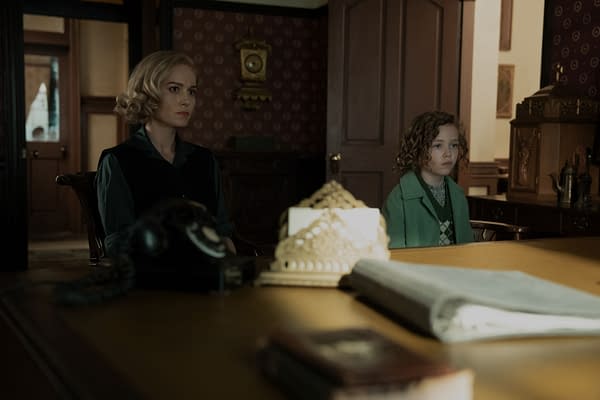
What was the most difficult sequence from your episodes?
There were two difficult ones. The protest was difficult and triggering. There was a moment after the first take when all the police officer extras were upset. They were being gentle with everybody. I was like, "You must go harder, and I had to egg them on, and they were like, "This doesn't feel right," but this goes back to authenticity. I was like, "We must be authentic, and then when we got to the point where I got too authentic, it was triggering for everybody." After one take, I turned around, and half of the crew was in tears, so that was hard for us on an emotional level.
There was another scene where, in 1932, Elizabeth Zott's brother commits suicide, and for the actors in that scene, even though we didn't belabor the suicide. The actor, who played the father, it was difficult to go that hard and did a wonderful job of staying in character. Showing how it affected this man as a discriminatory jerk to his son led to his son believing his life wasn't worth living. We took that moment when he walked outside to release it, but he still had to stay in character, and it was hard because that's not who the actor was.
Is there something about TV that you feel more at home at, or is it one of those things where it's wherever the chips fall into?
I have A.D.D., but I also have director A.D.D. I started with music videos, which have a fast turnaround, and that's how I paid for film school. I left because I wanted to tell stories and fell into television, which is also fast and requires a quick turnaround. I like being able to jump into different skin and different storytelling. I like sometimes being funny, dramatic, action-packed, or dark. You can jump in and out of those skins and move on, so I love television. I like the auteurship of films, but I'm more passionate about television.
With your recent projects, you've done a lot of stuff for Apple TV. Can you tell me how the platform nourishes its artists and creatives?
They go for strong material and then put talented creatives into it. It becomes enticing to work on the material, and they give a lot of freedom to create. In a situation where we are creatives, the more you provide the freedom to create, the more we love it and create more stuff that makes people love watching it. It's hard when you want to be free and let your mind roam, but you've got these like, "You got to stay in this box right here, and you can't go outside the box!" It's nice to be in a company like, "Okay, we don't have a box. We have some rules, but we don't have a box. So be authentic and create a vision true to whatever project you're working on." That's a nice environment to be in.
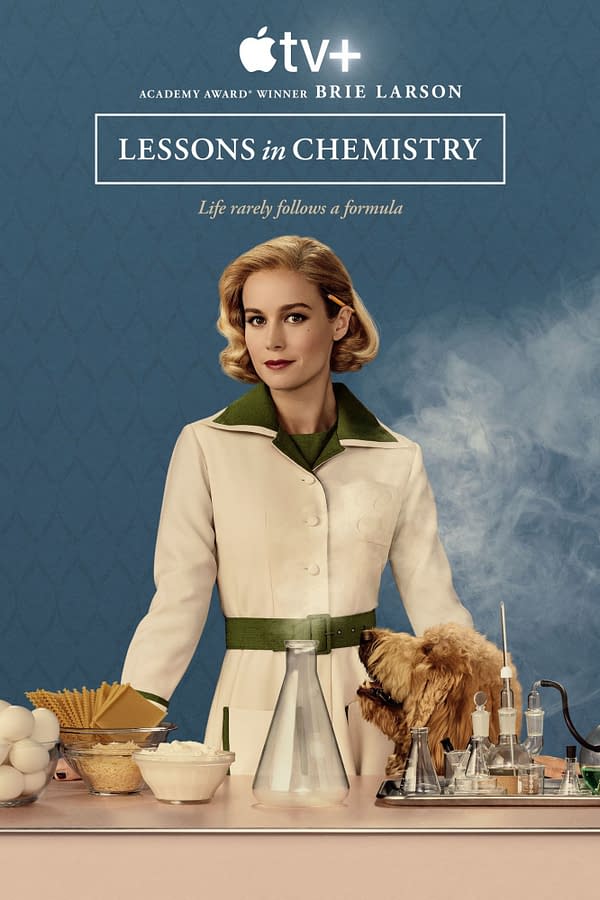
Lessons in Chemistry, which also stars Patrick Walker, Kevin Sussman, Marc Evan Jackson, Rainn Wilson, and Beau Bridges, is available to stream on Apple TV+. If you or someone you know is struggling with depression or suicidal thoughts, please do not hesitate to call the National Suicide Hotline at 1-800-273-8255, visit the main website, or text "988" for the crisis text line. If someone you know is struggling, do your best to reach out to them because they might not be able to reach out for help.






